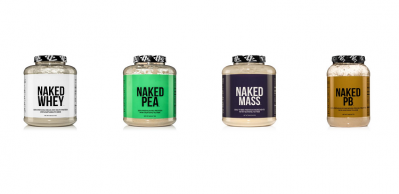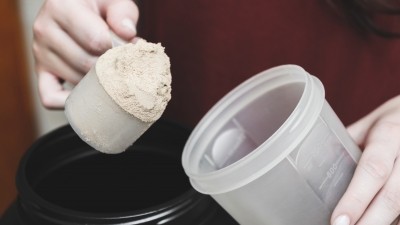Chocolate milk performs well in strength test with teens, but real world issues complicate study

The study was conducted by researchers affiliated with the University of Texas at Austin and funded by Dairy Max, a group representing diary farmers in southwestern US states. It evaluated the effects of chocolate milk as post workout beverage, measured against a commercially available carbohydrate-based sports drink.
Population that has been little studied
The study was conducted with 103 male and female athletes participating in a summer strength and speed training program at a large southwestern high school. The authors noted that there were almost 8 million high school athletes participating in organized sports in the 2016-2017 season, according to a national federation. This amounts to a huge underserved market and one that has been little studied, they said.
The training protocol for the study lasted seven weeks. In week one, baseline tests were performed. Then followed five weeks of training, followed by post training testing in week seven. Baseline and post-test measures included height, body weight, bench press, squat, and power clean.
The authors noted that past research has show promise in combining carbohydrates and protein in a post recovery supplement. But many of those studies used specially formulated test materials that are difficult to find or too costly in a real world setting.
“One of the challenges of translating this research into practice is the use of controlled ratios of carbohydrate to protein within supplementation. Ratios that have been used in the laboratory are difficult to find in quantity and at acceptable cost within the general population,” they wrote.
Chocolate milk has attractive nutrient profile
Chocolate milk, however, is a convenient stand-in for these laboratory beverages, they said. It provides an attractive ratio of protein to carbs and includes an important does of electrolytes as well, the researchers wrote.
They used the Horizon Organic chocolate milk brand, which they reported provided 16 grams of protein, 44 grams of carbohydrate (as lactose, sucrose and cocoa) and 360 mg of sodium in a 473 mL serving that came in at 300 calories. The commercial sports drink was provided in a 710 mL serving, with 46 grams of carbs, 320 mg of sodium and 160 calories.
The test protocol was based on the training program’s existing structure. The junior varsity and female participants were instructed to find a weight for each exercise that they could lift a maximum of three times. The varsity male athletes did that same for a one-time repetition (the idea being that they had more weight lifting experience and so were at less risk of injury).
The authors said the study is “the first to test the effectiveness of a commercially available form of chocolate milk as a post-exercise recovery method on strength in adolescents in a field trial in comparison to the effects of commercially available sports (CHO) drink. The results indicated that the CM group had greater improvements in the composite strength score compared to the CHO group.”
Lessons for future field trials
The authors said some of the difficulties they experienced in carrying out the study could be taken as lessons for future research. They had assumed that since most of the athletes had had previous training and the program itself was well established, the athletes would know how to do the lifts.
This was generally true for the bench presses and squats. But few of the athletes were familiar with the power clean lift, in which a bar is pulled rapidly from the floor to chest height. So the results of those lifts were of little use in forming their conclusions, they said.
This emphasized the need for thorough preparation and interaction with the training staff, they said. In addition, working with high school athletes means recruiting their parents, too, as most of these athletes are minors. The authors said they spent a full year laying the groundwork for the study.
“This study shows the importance of working with partners (high school coaches) during the planning stages of studies and training programs. The lack of control of the athletes’ diet and testing procedures were threats to internal validity, but the positive results inform the practice of these athletes. The study also guides the design of future research as it highlights the challenges and potential of these field-based designs,” they concluded.
Source: Journal of the International Society of Sports Nutrition
Chocolate Milk versus carbohydrate supplements in adolescent athletes: a field based study
Published 12 Feb 2018 doi.org/10.1186/s12970-019-0272-0
Authors: Born KA, Dooley EE, Cheshire PA, et al.
















